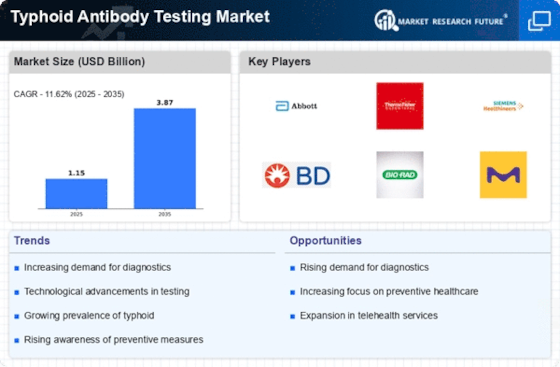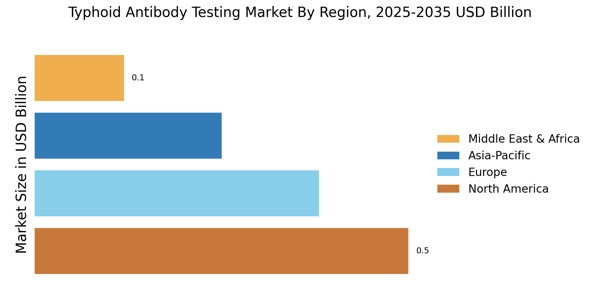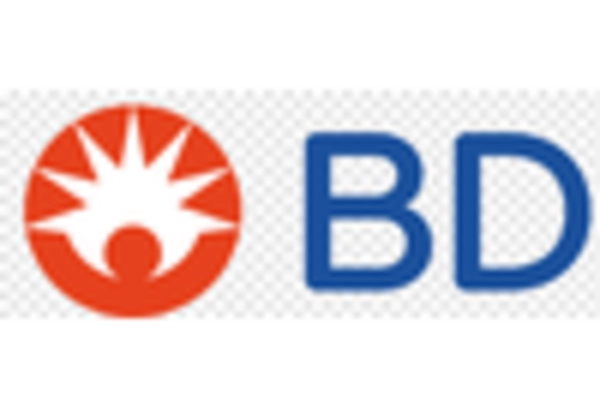Rising Incidence of Typhoid Fever
The increasing incidence of typhoid fever, particularly in developing regions, appears to be a primary driver for the Typhoid Antibody Testing Market. According to health reports, typhoid fever affects millions annually, with a notable prevalence in South Asia and sub-Saharan Africa. This rising trend necessitates effective diagnostic tools, thereby propelling the demand for antibody testing. As healthcare systems strive to manage and control outbreaks, the need for accurate and timely diagnosis becomes paramount. Consequently, the Typhoid Antibody Testing Market is likely to experience growth as healthcare providers seek reliable testing solutions to address this public health challenge.
Government Initiatives and Funding
Government initiatives aimed at combating infectious diseases are playing a crucial role in the Typhoid Antibody Testing Market. Various health organizations and governments are allocating funds to improve diagnostic capabilities and enhance public health infrastructure. For instance, initiatives to provide free or subsidized testing in endemic regions are likely to increase accessibility and encourage early diagnosis. This proactive approach not only aids in controlling the spread of typhoid fever but also stimulates the market for antibody testing. As funding continues to flow into healthcare systems, the Typhoid Antibody Testing Market is poised for expansion.
Rising Travel and Migration Patterns
Rising travel and migration patterns are influencing the Typhoid Antibody Testing Market. As global travel becomes more accessible, individuals are increasingly exposed to regions where typhoid fever is endemic. This exposure heightens the risk of infection, prompting travelers to seek antibody testing before and after their journeys. Additionally, migration for work or education often leads to increased interactions with populations in high-risk areas. Consequently, the demand for reliable testing solutions is likely to surge as individuals and healthcare providers prioritize preventive measures. This trend underscores the importance of the Typhoid Antibody Testing Market in addressing the health needs of a mobile population.
Growing Awareness of Preventive Healthcare
The growing awareness surrounding preventive healthcare is emerging as a significant driver for the Typhoid Antibody Testing Market. As individuals become more informed about the importance of early detection and prevention of diseases, the demand for antibody testing is likely to rise. Public health campaigns emphasizing vaccination and regular health check-ups contribute to this trend. Moreover, the increasing focus on personalized medicine and tailored healthcare solutions further propels the need for accurate diagnostic tests. Consequently, the Typhoid Antibody Testing Market stands to benefit from this heightened awareness, as more individuals seek proactive measures to safeguard their health.
Technological Innovations in Testing Methods
Technological advancements in testing methodologies are significantly influencing the Typhoid Antibody Testing Market. Innovations such as rapid diagnostic tests and multiplex assays enhance the accuracy and speed of typhoid detection. These advancements not only improve patient outcomes but also streamline laboratory processes, making testing more efficient. The market is witnessing a shift towards point-of-care testing, which allows for immediate results and facilitates timely treatment decisions. As these technologies continue to evolve, they are expected to drive the growth of the Typhoid Antibody Testing Market, catering to the increasing demand for rapid and reliable diagnostic solutions.


















